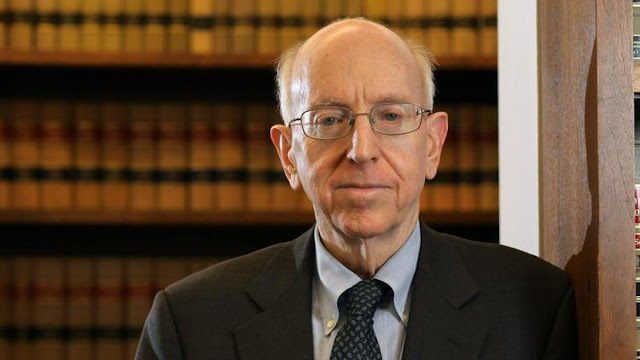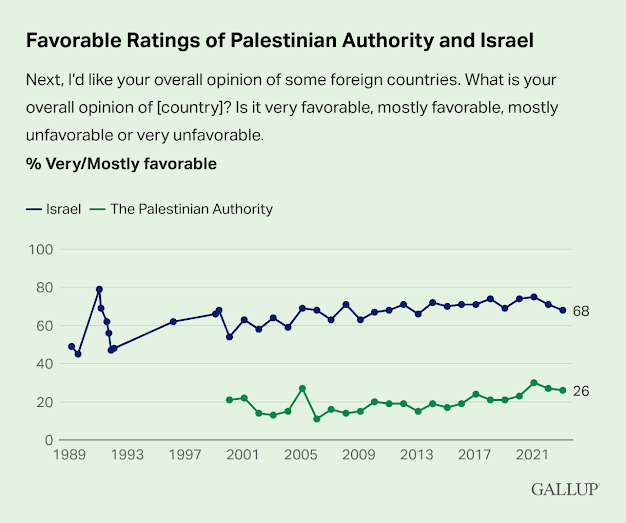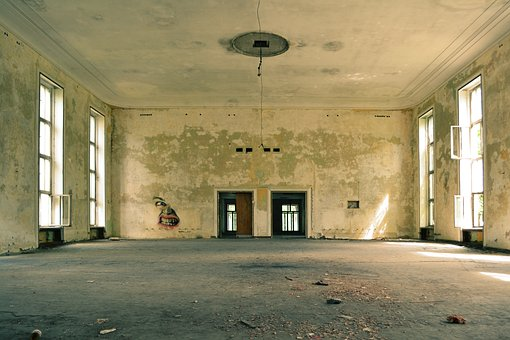 |
| Richard A,. Posner |
In 2007, The New Republic published an article by Richard A. Posner reviewing The Judge in a Democracy by Israel's former chief justice Aharon Barak, who had spearheaded the judicial revolution that many in Israel now want to turn back.
Enlightened DespotAharon Barak, a long-serving justice (eventually the chief justice) of the Supreme Court of Israel, who recently reached mandatory retirement age, is a prolific writer, and this is his most recent book. It is an important document, less for its intrinsic merits than for its aptness to be considered Exhibit A for why American judges should be extremely wary about citing foreign judicial decisions. Barak is a world-famous judge who dominated his court as completely as John Marshall dominated our Supreme Court. If there were a Nobel Prize for law, Barak would probably be an early recipient. But although he is familiar with the American legal system and supposes himself to be in some sort of sync with liberal American judges, he actually inhabits a completely different--and,to an American, a weirdly different--juristic universe. I have my differences with Robert Bork, but when he remarked, in a review of The Judge in a Democracy, that Barak "establishes a world record for judicial hubris," he came very near the truth.Barak is John Marshall without a constitution to expound--or to "expand," as Barak once revealingly misquoted a famous phrase of Marshall's ("we must never forget it is a constitution that we are expounding"). Israel does not have a constitution. It has "Basic Laws" passed by the Knesset, Israel's parliament, which Barak has equated to a constitution by holding that the Knesset cannot repeal them. That is an amazing idea: could our Congress pass a law authorizing every American to carry a concealed weapon, and the Supreme Court declare that the law could never be repealed? And only one-quarter of the Knesset's members voted for those laws!What Barak created out of whole cloth was a degree of judicial power undreamed of even by our most aggressive Supreme Court justices. He puts Marshall, who did less with more, in the shade. Among the rules of law that Barak's judicial opinions have been instrumental in creating that have no counterpart in American law are that judges cannot be removed by the legislature, but only by other judges; that any citizen can ask a court to block illegal action by a government official, even if the citizen is not personally affected by it (or lacks "standing" to sue, in the American sense); that any government action that is "unreasonable" is illegal ("put simply, the executive must act reasonably, for an unreasonable act is an unlawful act"); that a court can forbid the government to appoint an official who had committed a crime (even though he had been pardoned) or is otherwise ethically challenged, and can order the dismissal of a cabinet minister because he faces criminal proceedings; that in the name of "human dignity" a court can compel the government to alleviate homelessness and poverty; and that a court can countermand military orders, decide "whether to prevent the release of a terrorist within the framework of apolitical 'package deal,'" and direct the government to move the security wall that keeps suicide bombers from entering Israel from the West Bank.These are powers that a nation could grant its judges. For example, many European nations and even some states in the United States authorize "abstract" constitutional review--that is, judicial determination of a statute's constitutionality without waiting for a suit by someone actually harmed by the statute. But only in Israel (as far as I know) do judges confer the power of abstract review on themselves, without benefit of a constitutional or legislative provision. One is reminded of Napoleon's taking the crown out of the pope's hands and putting it on his own head.Barak does not attempt to defend his judicial practice by reference to orthodox legal materials; even the "Basic Laws" are mentioned only in passing. His method, lacking as it does any but incidental references to enacted provisions, may seem the method of the common law (the judge-made law that continues to dominate many areas of Anglo-American law, such as contracts and torts), except that common-law rules are subject to legislative override, and his rules are not. The significance of this point seems to elude him. He takes for granted that judges have inherent authority to override statutes. Such an approach can accurately be described as usurpative.Barak bases his conception of judicial authority on abstract principles that in his hands are plays on words. The leading abstraction is "democracy." Political democracy in the modern sense means a system of government in which the key officials stand for election at relatively short intervals and thus are accountable to the citizenry. A judiciary that is free to override the decisions of those officials curtails democracy. For Barak, however, democracy has a "substantive" component, namely a set of rights ("human rights" not limited to political rights, such as the right to criticize public officials, that support democracy), enforced by the judiciary, that clips the wings of the elected officials. That is not a justification for a hyperactive judiciary, it is merely a definition of it.Another portmanteau word that Barak abuses is "interpretation," which for him is remote from a search for the meaning intended by the authors of legislation. He says that the task of a legislature in passing statutes is "to bridge the gap between law and society, "and that the task of the judge in interpreting a statute is to "ensure that the law in fact bridges the gap between law and society." This is very odd--isn't the statute the law, rather than the intermediary between the law and the society? What he seems to mean, as further suggested by his statement that "whoever enforces a statute enforces the whole legal system," is that a statute should be interpreted so that it is harmonious with the spirit or values of the legal system as a whole, which as a practical matter means with the judge's ideal system, since no real legal system has a unitary spirit or common set of values.This understanding of Barak's approach is further suggested by his statement that a judge, in addition to considering the language and background and apparent purpose of a statute, should consider its "objective purpose ... to realize the fundamental values of democracy." This opens up a vast realm for discretionary judgment (the antithesis of "objective"); and when a judge has discretion in interpreting a statute, Barak's "advice is that ... the judge should aspire to achieve justice." So a regulation that authorizes military censorship of publications that the censor "deems likely to harm state security, public security, or the public peace" was interpreted by Barak's court to mean "would create a near certainty of grave harm to state security, public security, or public peace." It is thus the court that makes Israel's statutory law, using the statutes themselves as first drafts that the court is free to rewrite.Barak invokes the "separation of powers" as further support for his aggressive conception of the judicial role. What he means by separation of powers is that the executive and legislative branches are to have no degree of control over the judicial branch. What we mean by separation of powers, so far as judicial authority is concerned, is that something called the judicial power of the United States has been consigned to the judicial branch. That doesn't mean the branch is independent of the other branches. If each of the powers (executive, legislative, and judicial) were administered by a branch that was wholly independent and thus could ignore the others, the result would be chaos. The branches have to be mutually dependent, in order to force cooperation. So "separation of powers" implies "checks and balances," and the judicial branch has to be checked by the other branches, and not just do the checking. And so rather than our judiciary being a self-perpetuating oligarchy, the president nominates and the Senate confirms (or rejects) federal judges, and Congress fixes their salaries, regulates the Supreme Court's appellate jurisdiction, decides whether to create other federal courts, determines the federal judiciary's budget, and can remove judges by means of the impeachment process. Moreover, the judicial power of the United States can be exercised only in suits brought by persons who have standing to sue in the sense of having a tangible grievance that can be remedied by the court. And because the judicial power is not the only federal power--there are executive and legislative powers of constitutional dignity as well--the judiciary cannot tell the president whom to appoint to his cabinet.In Barak's conception of the separation of powers, the judicial power is unlimited and the legislature cannot remove judges. (And in Israel, judges participate in the selection of judges.) Outfitted with such abstractions as "democracy," "interpretation," "separation of powers," "objectivity," "reasonableness" (it is "the concept of reasonableness" that Barak would have used to adjudicate the "package deal" for the release of the terrorist), and of course "justice" ("I try to be guided by my North Star, which is justice. I try to make law and justice converge, so that the Justice will do justice"), a judge is a law unto himself.
|
Or order from your favorite bookseller, using ISBN 9798985708424. Read all about it here! |

|

 Elder of Ziyon
Elder of Ziyon









































